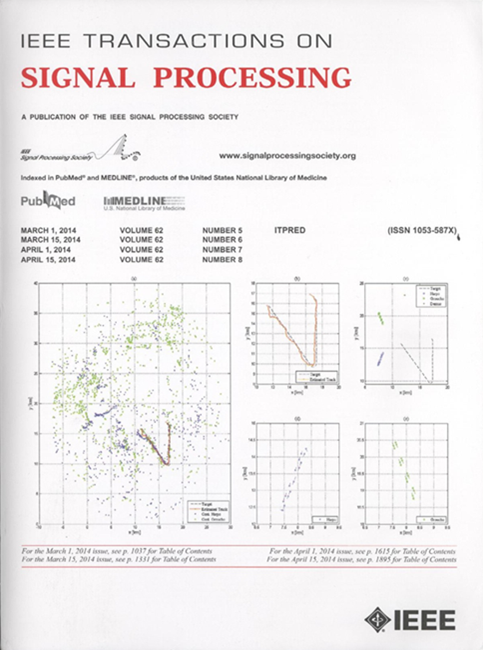Distributed Adaptive Spatial Filtering With Inexact Local Solvers
IF 4.6
2区 工程技术
Q1 ENGINEERING, ELECTRICAL & ELECTRONIC
引用次数: 0
Abstract
The Distributed Adaptive Signal Fusion (DASF) framework is a meta-algorithm for computing data-driven spatial filters in a distributed sensing platform with limited bandwidth and computational resources, such as a wireless sensor network. The convergence and optimality of the DASF algorithm has been extensively studied under the assumption that an exact, but possibly impractical solver for the local optimization problem at each updating node is available. In this work, we provide convergence and optimality results for the DASF framework when used with an inexact, finite-time solver such as (proximal) gradient descent or Newton's method. We provide sufficient conditions that the solver should satisfy in order to guarantee convergence of the resulting algorithm as well as numerical simulations to validate these theoretical results.非精确局部求解的分布式自适应空间滤波
分布式自适应信号融合(DASF)框架是一种元算法,用于在带宽和计算资源有限的分布式传感平台(如无线传感器网络)中计算数据驱动的空间滤波器。DASF算法的收敛性和最优性已经得到了广泛的研究,假设每个更新节点的局部优化问题都有一个精确但可能不切实际的求解器。在这项工作中,我们提供了DASF框架在与不精确的有限时间求解器(如(近端)梯度下降或牛顿方法)一起使用时的收敛性和最优性结果。为了保证所得算法的收敛性,我们给出了求解器应满足的充分条件,并通过数值模拟验证了这些理论结果。
本文章由计算机程序翻译,如有差异,请以英文原文为准。
求助全文
约1分钟内获得全文
求助全文
来源期刊

IEEE Transactions on Signal Processing
工程技术-工程:电子与电气
CiteScore
11.20
自引率
9.30%
发文量
310
审稿时长
3.0 months
期刊介绍:
The IEEE Transactions on Signal Processing covers novel theory, algorithms, performance analyses and applications of techniques for the processing, understanding, learning, retrieval, mining, and extraction of information from signals. The term “signal” includes, among others, audio, video, speech, image, communication, geophysical, sonar, radar, medical and musical signals. Examples of topics of interest include, but are not limited to, information processing and the theory and application of filtering, coding, transmitting, estimating, detecting, analyzing, recognizing, synthesizing, recording, and reproducing signals.
 求助内容:
求助内容: 应助结果提醒方式:
应助结果提醒方式:


